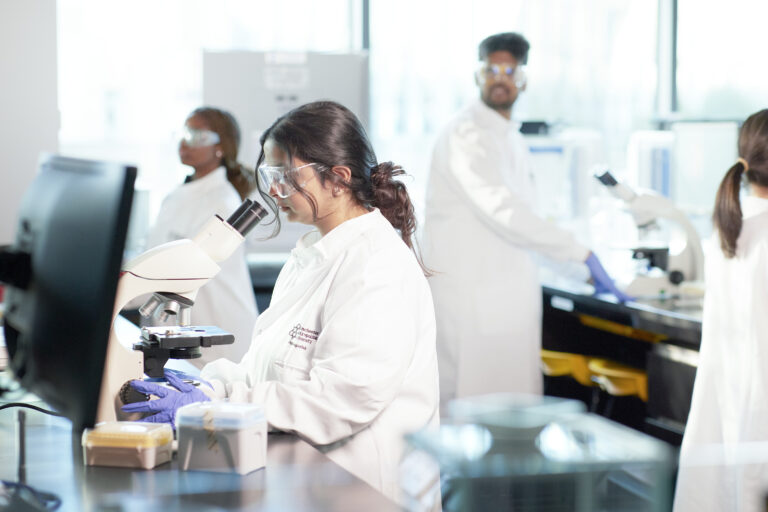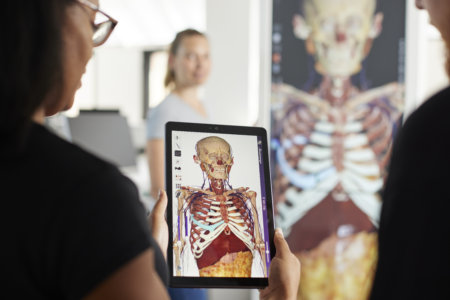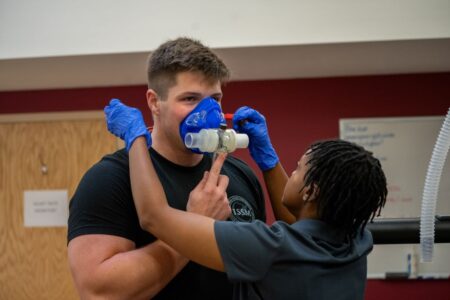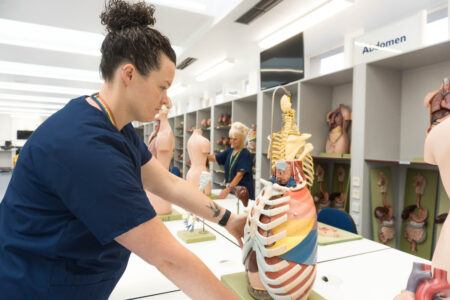
From AI healthcare solutions to cutting-edge drug development, the life sciences are shaping the future of medicine and creating new ways to improve health worldwide. This is why the industry is set for exciting growth. Currently worth over US$2 trillion, it’s on track to grow even more by 2025, driven by technological advances and the increasing need for healthcare solutions for an ageing global population.
In the US alone, the life sciences sector hit a record 2.1 million jobs at the start of 2023. Although there was a slight 0.2% drop in the first half of 2024, the sector remains strong. In fact, the global AI market in life sciences is expected to reach US$7.09 billion by 2028, sparking a wave of new jobs in drug development, data science, and regenerative medicine.
With a wide range of career opportunities in pharmaceuticals, biotechnology, and healthcare, the life sciences offer endless opportunities to shape the future. If you’re interested in joining this fast-growing industry, here are three universities that can get you started:

At the new Dalton Building, students can use £115 million worth of facilities for their research. Source: Manchester Metropolitan University
Manchester Metropolitan University
The Department of Life Sciences at Manchester Metropolitan University is dedicated to transforming lives and enhancing well-being through education at every level. Accredited by several professional bodies, including the Institute of Biomedical Science, the Health and Care Professions Council, the Royal Society of Biology, and the National School of Healthcare Science, the department offers both undergraduate and postgraduate degrees for you to jumpstart your career as biomedical scientist or level up to become a clinical scientist.
Undergraduate programmes include seven bachelor’s degrees and a foundation year for the life sciences route, while its postgraduate study offers six pathways, including the MSc Biomedical Science, MSc Cellular Pathology, MSc Clinical Biochemistry, MSc Haematology and Transfusion Science, MSc Human Physiology, and the MSc Medical Microbiology.
Regardless of your specialisation, lectures will be delivered in the new Dalton Building, where you can utilise £115 million worth of state-of-the-art facilities like specialist laboratories, active learning suites and specialised equipment to investigate molecular, cellular, and physiological mechanisms that influence health and diseases across the human lifespan.
Besides the department’s overall goal of addressing age-related health conditions and understanding the mechanisms of ageing and pathologies, its research also focuses on understanding and tackling cardiovascular diseases, improving healthcare through applied microbiology, genetics, and blood sciences, and understanding the mechanisms controlling human movement. Join the fight and expect to build a powerful network that will support and propel your career for years to come.
“I lead a team of dedicated academics who deliver excellent education and impactful research,” says Head of Department Prof Carol Ainley. “We work with other higher education institutions, regional hospitals, and industry partners, forming collaborations that are greater than the sum of their parts.”
Learn more about the Department of Life Sciences at Manchester Metropolitan University today.

Through interdisciplinary learning, research, and innovation, Swansea has become a leading UK provider of health and life sciences education. Source: Swansea University
Swansea University
The Faculty of Medicine, Health, and Life Sciences at Swansea University is determined to improve the well-being of local, national, and global communities. By joining its community of scholars and enterprises, you’ll enter a unique learning environment dedicated to innovating, discovering, and making a real-world impact. Doing so has never been easier thanks to the university’s international student advisor team and generous scholarships — both of which ensure you have a smooth learning journey from application to graduation.
The university is just as prestigious as it is accessible — its ranked among the top 21% of universities worldwide. Its Faculty of Medicine, Health and Life Science is equally impressive, ranked among the top 5 in the UK for Medicine and the top 10 for Nursing. 85% of its research is world-leading or internationally excellent.
Whether you want to be a doctor, nurse, or life scientist, your studies here will be informed by the cutting-edge discoveries made daily. Plus, Swansea’s undergraduate and postgraduate degree programmes can be tailored to your goals. Standout offerings include the BSc in Applied Medical Sciences, BSc and MSci in Biochemistry, and many more.
Regardless of your route, you’ll learn and train in a world-leading research environment with strong industry ties. You can even apply knowledge at the Swansea University Medical School — a top choice in South West Wales. Through each placement, you will be steps closer to mastering the skills and competencies employers seek today.

The University of Memphis is affordable, prepares you for careers, and is filled with experiences within and beyond the classroom. Source: University of Memphis
University of Memphis
The College of Arts & Sciences (CAS) is the largest school at the University of Memphis (UofM), with over 4,000 undergraduate students majoring in degree programmes across 24 academic units spanning the humanities, social sciences, and natural sciences. Each programme within CAS provides exceptional pathways to careers and graduate or professional studies.
Choose an accelerated bachelor’s to master’s track with five-year plans to complete two degrees. Pursue a 3+4 programme with pharmacy schools at East Tennessee State University, the UT Health Science Centre (UTHSC), or Union University. The UofM has even partnered with UTHSC College of Medicine to offer pre-health students the chance for a guaranteed interview.
Flexible academic options let you tailor your education to your needs. You can choose from different degree paths and select the electives and concentrations that best serve your interests or career goals. Don’t worry about being too specialised to get hired, though. UofM degrees ensure you hone transferable skills that would be in demand in various roles and industries.
But the best part is the opportunity to learn by doing both in and out of the classroom. CAS contains multiple research centres and institutes, including the Centre for Earthquake Research and Information, the Centre for Applied Psychological Research, and the Institute for Intelligent Systems. There are also countless opportunities for experiential learning in the community and the classroom through project-based learning. Whether through research, internships, practicum placements, or projects, you can gain practical experience and apply your knowledge and skills in real-world or simulated settings.
*Some of the institutions featured in this article are commercial partners of Study International










